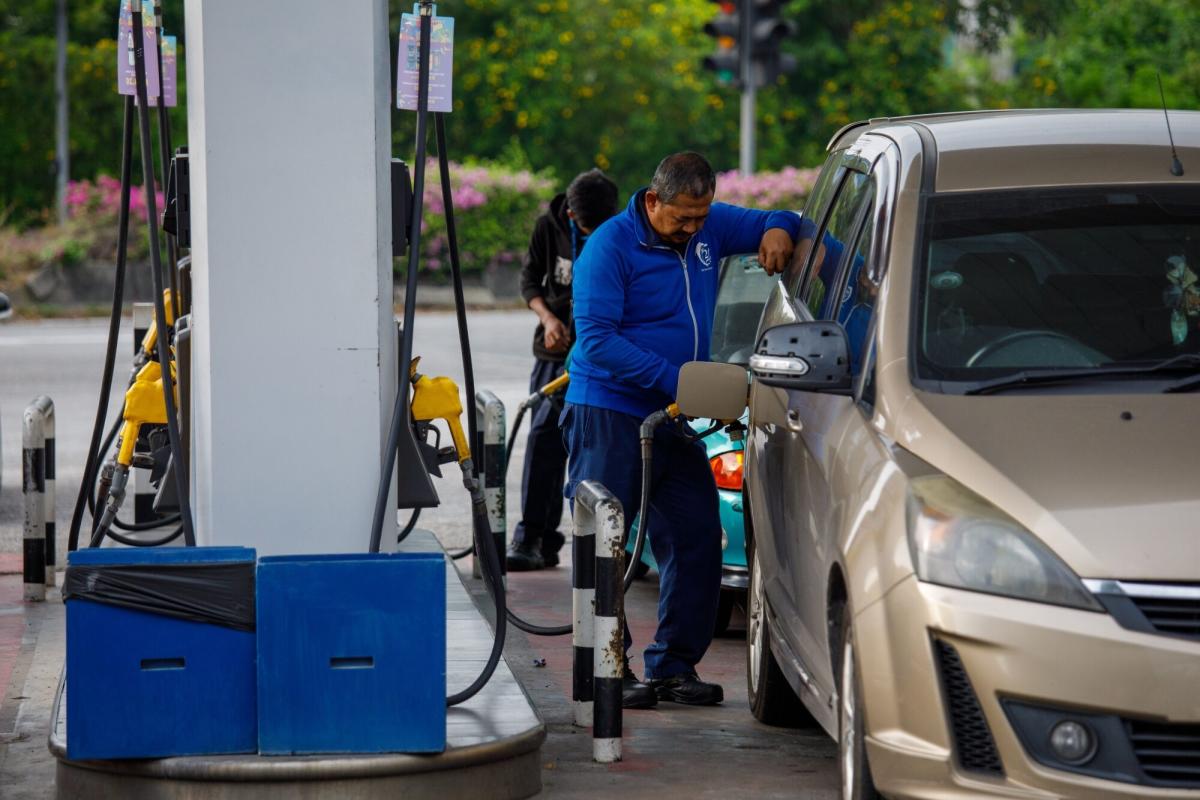


(Bloomberg) — Malaysia is weighing the return of a broad-based consumption tax instead of implementing subsidy cuts for a commonly-used gasoline as the government seeks to bolster its finances, according to people familiar with the matter.
Most Read from Bloomberg
Prime Minister Anwar Ibrahim’s cabinet has been discussing the viability of bringing back the goods and services tax, the people said, asking not to be identified as the information is private. No decision has been reached given the political sensitivities, they added.
There is an emerging view in government that imposing GST may be politically easier than removing subsidies for popular RON95 petrol since the Southeast Asian country is an oil producer and most Malaysians consider cheap petrol to be a necessity, the people said.
Still, bringing in a consumption tax is a political minefield for governments in Malaysia that have struggled for decades to boost tax collection rates, among the lowest in Southeast Asia. Passing legislation to reinstate GST is easier with a two-thirds majority in parliament, which Anwar controls through his coalition, but government lawmakers are more than likely to be against it.
Anwar has reason to be cautious in bringing back the GST, which was first introduced by former leader Najib Razak back in 2015 at 6% and partly led to his downfall in elections three years later. The subsequent government, led by Mahathir Mohamad, repealed the unpopular consumption tax, and his finance minister said it was used to partly cover up the multibillion dollar 1MDB scandal.
While Anwar has said as recently as May that there were no plans to introduce new taxes, the people said there has been a shift within government given stronger-than-expected economic growth, a cut in diesel subsidies in June adding to coffers and the prime minister’s coalition clinching a landslide win in a recent by-election.
A spokesperson with Malaysia’s Finance Ministry declined to comment while the Economy Ministry didn’t respond to a Bloomberg News request for comment. Communications Minister Fahmi Fadzil told local media on Thursday there were no plans to bring back GST, denying there had been discussions on the matter.
The ringgit strengthened 0.5% to 4.3230 against the dollar, the highest since Feb. 2023 and the best performer across emerging markets.
Economists said both subsidy reforms and bringing back GST are necessary since Malaysia wants to whittle down the budget gap and boost spending.
“The government has already taken key steps with diesel,” said Euben Paracuelles, a Nomura Holdings Inc. economist in Singapore. “Reinstating GST is also rational from the perspective of broadening the tax base, but this could be done at a later time after careful consideration.”
Currently Malaysia imposes a sales and services tax, or SST, which replaced the GST in 2018 and is a one-time tariff on all good and services with a list of exemptions for live animals, medicines and machinery. The last time Malaysia had GST, it was a multi-stage consumption tax imposed across the supply chain with exemptions of essential items including transportation, health, and education.
OCBC said GST revenues accounted for 3.3% of GDP in 2016-17 compared to SST revenues of about 2% in 2023.
“Reintroducing GST will be positive for Malaysia’s fiscal consolidation agenda,” it said in a note on Thursday. “However, the rate of reintroduction will be important.”
Malaysia’s government wants to cut its budget deficit to 4.3% of gross domestic product in 2024 from 5% last year by phasing out broad subsidies. Any signs of a shift in government thinking may come when Anwar, who is also Finance Minister, presents the federal budget on Oct. 18.
However, Anwar’s administration is already lifting spending by increasing civil service salaries by over 10 billion ringgit ($2.3 billion) by next year, the first revision in more than a decade.
The OECD on Tuesday urged Malaysia to reintroduce GST at a low rate while compensating low-income households with “targeted transfers,” saying in a report that Malaysia’s tax revenue accounts for only 12% of GDP. The nation needs to find additional tax revenues to meet its deficit target and finance future spending needs, the Paris-based organization said.
Industry groups want to see the same. The National Chamber of Commerce and Industry of Malaysia said in May that setting the GST at 4% would be the best way to boost government revenue and tax refund vouchers should be considered.
–With assistance from Anisah Shukry.
(Updates with latest market movements in paragraph eight. An earlier version corrected a title in paragraph seven to Communications Minister.)
Most Read from Bloomberg Businessweek
©2024 Bloomberg L.P.